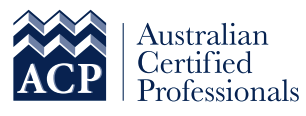Blog
ACP Accountants News

By ACP Team
•
February 14, 2025
If you employ staff, here are the important dates and obligations to remember throughout the year, to set yourself up for success. Super guarantee (SG) 28 January, 28 April, 28 July, and 28 October are the quarterly due dates for making SG payments. The SG rate is currently 11.5% of an employee’s ordinary time earnings. From 1 July 2025, the SG rate will increase to 12%. Ensure SG for your eligible employees is paid in full, on time and to the right super fund. If you don’t, you'll need to lodge a super guarantee charge (SGC) statement and pay the SGC to the ATO. Fringe benefits tax (FBT) 31 March 2025 marks the end of the 2024–25 FBT year. There are 4 key steps to nail your obligations for FBT tax time. Identify if you've provided a fringe benefit. Determine the taxable value to work out if you have an FBT liability. Lodge an FBT return and pay any FBT owed (if you have a liability) by 21 May 2025. If your registered tax agent lodges electronically for you, you have until 25 June 2025. Keep the right records to support your FBT position. Pay as you go (PAYG) withholding You need to withhold the right amount of tax from payments you make to your employees and other payees, and pay those amounts to the ATO. This helps your employees meet their end-of-year tax liabilities. Your accounting or payroll software, the ATO tax tables or online tax withheld calculator will help you do this. Single touch payroll (STP) Fina lize your STP data by 14 July 2025 for the 2024–25 year. This ensures your employees have the right information they need to lodge their income tax returns. If you have any closely held payees, you may have a later due date for those payees only. Remember to finalize all employees you’ve paid in the financial year. ACP Accountants are leading Sydney accountants and tax specialists. Please call us today on 02-8046 7621 if you need our help.

By ACP Team
•
November 27, 2024
With the holiday season kicking off, you may be planning a celebration with your staff. Consider if fringe benefits tax (FBT) may apply or you could end up with an unexpected FBT liability. Before you hire a restaurant or book an event, make sure you work out if the benefits you provide your employees are considered entertainment related and if they’ll attract fringe benefits tax (FBT). This will depend on: the amount you spend on each employee when and where your celebration is held who attends - is it just employees? Or are partners, clients and suppliers also invited? the value and type of gifts you provide If you do provide entertainment-related fringe benefits, keep the right records to support this so you can calculate their taxable value. It's important to get on top of how FBT works before you provide perks and extras. Otherwise, you may end up with an unexpected FBT liability. For more information, please contact your Sydney business accountants – ACP Accountants on 02-80467621, or simply get in touch and email us at info@acpaccountants.net.au.

By ACP Team
•
October 4, 2024
One of the many responsibilities SMSF trustees have every income year is valuing your fund's asset at market value. Each year you need to value your SMSFs assets and provide supporting evidence to your auditor. The market value of an asset is the amount that a willing buyer and seller would agree to in an arms-length transaction. These valuations will be used when preparing your fund's accounts, statements and SMSF annual return (SAR). Your asset valuations will be reviewed by your approved SMSF auditor as part of the annual audit prior to lodgment of your SAR. Your auditor will check that assets have been valued correctly, assess and document whether the basis for the valuations is appropriate given the nature of the asset. They are not responsible for valuing fund assets. Make sure you get your valuations done before going to your auditor. It's your responsibility to provide objective and supportable evidence to your auditor for the valuation of the fund's assets, including all relevant documents requested to prevent delays in auditing the fund. Failure to do so could result in a potential late lodgment of your annual return or a contravention if mistakes have been made. Start researching now to find what type of evidence your need to support the valuation as this can take time. For some asset types the law requires valuations to be undertaken by a qualified independent valuer. For further information, please contact Sydney Business Accountants – ACP Accountants on 02-80467621, or simply email us at info@acpaccountants.net.au.

By ACP Team
•
July 14, 2024
Two Western Australian directors were recently convicted for failing to have a director ID. Both directors were fined $5,000 in the Perth Magistrates Court on 3 May 2024, for failing to comply with director identification requirements. The maximum penalty for failure to comply is currently a fine of $18,780. The Magistrate stated the director ID service had been enacted for a proper public purpose and considerable efforts had been made by government agencies to bring the accused’s attention to the service and comply. All directors are required to verify their identity with the Australian Business Registry Services (ABRS) and apply for their director ID prior to being appointed as a director. Please note that directors must apply for their director ID themselves. The fastest way is to apply online at ABRS.gov.au. If a director is unable to apply online, you can phone ABRS on 13 62 50. For more information about who needs a director ID and how to apply, visit ABRS.gov.au. If you have any questions, please contact your accountant/tax professionals, or contact us today on 02-8046 7621, your local Sydney business accountants.

June 19, 2024
2024 tax time is just around the corner. It’s also the time to check if there are any items that you tax deductible and that it could save you quite a bit of time. Finalise your employees' single touch payroll (STP). If you have employees, make sure you finalise their 2023–24 STP information by 14 July. This is an important end-of-year obligation and ensures your employees have the right information they need to lodge their income tax return. Remember to finalise all employees you’ve paid in the financial year, even those you haven’t paid for a while, like terminated employees. Check your pay as you go (PAYG) withholding and instalments From 1 July, individual tax rates and thresholds will change. This will impact your PAYG withholding for the 2025 financial year. Check you're using the correct PAYG withholding tax table and that your payroll software is using the new withholding rates from 1 July. When it comes to your PAYG instalments, if you think these could result in you paying too little or too much tax for the year, you can vary your instalments. You can do this when you lodge your activity statement or instalment notice. Remember to lodge your variation on or before the day your PAYG instalment is due, and before you lodge your tax return for the year. Good record-keeping habits Heading toward the new financial year, think about your record-keeping habits this past year and whether you’d do anything differently. Good record keeping is one of the foundations of running a successful business. If you haven’t already, now is a great time to connect with us – your Sydney business accountants at ACP Accountants. Simple call us on 02-80467621, or send us an email at info@acpaccountants.net.au.

By ACP Team
•
April 17, 2024
From 1 April, it's a new fringe benefits tax (FBT) year. If you're an employer and have provided certain benefits to your staff in addition to their salary and wages, it's important to understand how FBT works and what is considered a fringe benefit. Perks that could attract FBT include providing employees with a work car (including dual cab Utes) for private purposes, gym memberships, or tickets to an event or show. If you provided these benefits to your staff, make sure you know how to lodge and pay the FBT. Here's 4 easy steps to help you get your FBT reporting right the first time: Identify the types of fringe benefits you provide Determine the taxable value of each fringe benefit Lodge an FBT return and pay by 21 May (for self-preparers). If your tax professional lodges electronically on your behalf, you have until 25 June Keep good records to support your calculations and FBT position If you don't have an FBT liability for the 2023–24 FBT year and you're registered for FBT, you will need to lodge a completed FBT non-lodgment advice form. If this is your first time lodging through a tax professional, make sure you contact them before 21 May to be added to their FBT client list. This ensures you’re eligible for the June lodgment and payment date. Contact us today – your Sydney small business accountants, or simply call us on 02 80467621.

By ACP Team
•
March 14, 2024
The Federal Government recently announced the increases in the standard concessional and non-concessional contributions caps. From 1 July 2024, the standard concessional contribution cap will increase from $27,500 to $30,000. From 1 July 2024, the non-concessional contribution cap, which is expressed as 4 times the standard concessional contribution cap, will also increase from $110,000 to $120,000. This also means that the maximum available, under the non-concessional contribution bring-forward provisions, will increase from $330,000 to $360,000. From 1 July 2024, the Total Superannuation Balance Thresholds used to determine the maximum amount of bring-forward non-concessional contributions available to an individual will also be adjusted. Running your own business and have no time to deal with tax issues? Contact ACP Accountants today on 02 8046 7621, or email us at info@acpaccountants.net.au, and we will take care of your taxation matters as they were our own.

By Alan Law
•
May 8, 2023
The ATO will acquire residential investment property loan data from authorized financial institutions for the 2021-22 through to 2025-26 financial years, including: client identification details (names, addresses, phone numbers, dates of birth, etc); account details (account numbers, BSB's, balances, commencement and end dates, etc); transaction details (transaction date, transaction amount, etc); and property details (addresses, etc). The ATO estimates that records relating to approximately 1.7 million individuals will be obtained each financial year. The principal uses of this data include “education and online services”, “data analytics and insights”, as well as to help the ATO “identify relevant cases for administrative action, including compliance activities”. The ATO has a dedicated webpage dealing with its data-matching protocols (24 in total at the time of writing). It states on this webpage that: “Matching external data with our own helps us to ensure that people and businesses comply with their tax and super obligations. It also helps us to detect fraud against the Commonwealth.”

By Alan Law
•
April 20, 2022
From 1 July 2022, you will need to pay super for your employees who are under 18 years old if they work more than 30 hours for you in a week. This is because the $450-per-month threshold for super guarantee is being removed. Employees who are under 18 will be eligible for super if they work more than 30 hours in a week, regardless of how much they’re paid. For example, Jenny is 17 years old and works a 32-hour week once a month at her local hardware store, earning $382 before tax. She also works 6 hours a month as a barista for a cafe down the road. As Jenny works over 30 hours in one week in her job with the hardware store, her hardware employer will need to pay her super from 1 July 2022. As Jenny does not work 30 hours in a week in her job as a barista, she won’t be entitled to super for this work. Likewise, Jenny won't be entitled to super for any weeks she works less than 30 hours for the hardware store. As we move closer to 1 July 2022, check your payroll and accounting systems have been updated so you can correctly calculate your employees' super guarantee payments.
Want more information?

© 2025
ACP Accountants
Latest news

By ACP Team
•
February 14, 2025
If you employ staff, here are the important dates and obligations to remember throughout the year, to set yourself up for success. Super guarantee (SG) 28 January, 28 April, 28 July, and 28 October are the quarterly due dates for making SG payments. The SG rate is currently 11.5% of an employee’s ordinary time earnings. From 1 July 2025, the SG rate will increase to 12%. Ensure SG for your eligible employees is paid in full, on time and to the right super fund. If you don’t, you'll need to lodge a super guarantee charge (SGC) statement and pay the SGC to the ATO. Fringe benefits tax (FBT) 31 March 2025 marks the end of the 2024–25 FBT year. There are 4 key steps to nail your obligations for FBT tax time. Identify if you've provided a fringe benefit. Determine the taxable value to work out if you have an FBT liability. Lodge an FBT return and pay any FBT owed (if you have a liability) by 21 May 2025. If your registered tax agent lodges electronically for you, you have until 25 June 2025. Keep the right records to support your FBT position. Pay as you go (PAYG) withholding You need to withhold the right amount of tax from payments you make to your employees and other payees, and pay those amounts to the ATO. This helps your employees meet their end-of-year tax liabilities. Your accounting or payroll software, the ATO tax tables or online tax withheld calculator will help you do this. Single touch payroll (STP) Fina lize your STP data by 14 July 2025 for the 2024–25 year. This ensures your employees have the right information they need to lodge their income tax returns. If you have any closely held payees, you may have a later due date for those payees only. Remember to finalize all employees you’ve paid in the financial year. ACP Accountants are leading Sydney accountants and tax specialists. Please call us today on 02-8046 7621 if you need our help.

By ACP Team
•
November 27, 2024
With the holiday season kicking off, you may be planning a celebration with your staff. Consider if fringe benefits tax (FBT) may apply or you could end up with an unexpected FBT liability. Before you hire a restaurant or book an event, make sure you work out if the benefits you provide your employees are considered entertainment related and if they’ll attract fringe benefits tax (FBT). This will depend on: the amount you spend on each employee when and where your celebration is held who attends - is it just employees? Or are partners, clients and suppliers also invited? the value and type of gifts you provide If you do provide entertainment-related fringe benefits, keep the right records to support this so you can calculate their taxable value. It's important to get on top of how FBT works before you provide perks and extras. Otherwise, you may end up with an unexpected FBT liability. For more information, please contact your Sydney business accountants – ACP Accountants on 02-80467621, or simply get in touch and email us at info@acpaccountants.net.au.
